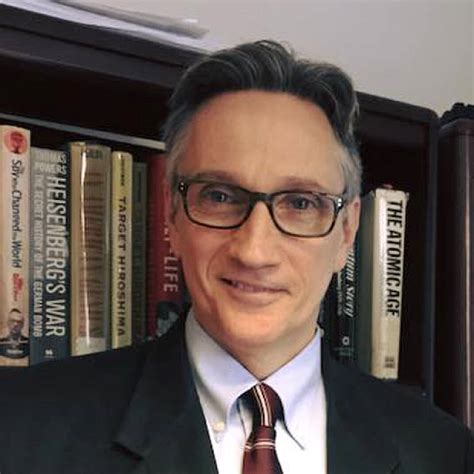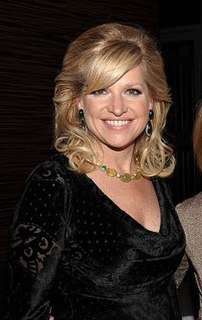A Quote by Gene Weingarten
Is it really the right of the media to dictate to the president whom he will allow in his press conferences? That's tetchier. And then there is the added issue of whether it would be a service to their readers, and the country at large, for, say, the Washington Post to take itself out of the room -- meaning they don't have the ability to ask important questions the president is obliged to answer? I think that would be a mistake.
Quote Topics
Ability
Added
Allow
Answer
Ask
Conferences
Country
Dictate
His
Important
Important Question
Important Questions
Issue
Itself
Large
Meaning
Media
Mistake
Obliged
Out
Post
President
Press
Press Conference
Press Conferences
Questions
Readers
Really
Right
Room
Say
Service
Take
Then
Think
Washington
Washington Post
Whether
Whom
Will
Would
Would Be
Related Quotes
Philosophers often think all scientists must be scientific realists. If you ask a simple question like "Are electrons real?" the answer will be "Yes". But if your questions are less superficial, for example whether some well-known scientist was a good scientist. Then, they had insisted that only empirical criteria matter and that they actually did not believe in the reality of sub-atomic entities. Ask "If that turned out to be true, would you still say they were good scientists?" The answer would reveal something about how they themselves understood what it is to be a scientist.
I don't play golf. I don't play basketball. I don't really like cards. I don't think anybody questions whether or not I have a role to play here. And so I think it is irrelevant whether the president wants to do that in some of his free time. What's really important is, when we have something to say, does he listen to us?
I have tried to emphasize to people that, hey, just like President Obama was a really good president, and the fact that he was black I think was historic and unprecedented, but he also claimed and owned his excellence, and that's why I'm saying, okay - I think it's really exciting and historic that I would be the first woman president, but I have a lot of work I want to do. And I hope that people will say, "Hey, she's getting it done." That's how I think about it.
The President, and government, will only control the militia when a part of them is in the actual service of the federal government, else, they are independent and not under the command of the president or the government. The states would control the militia, only when called out into the service of the state, and then the governor would be commander in chief where enumerated in the respective state constitution.
Depending on what you do and how you do what you do, I wouldn't recommend for everyone to allow themselves to be public online. I think it also in some way, shape or form allows you to answer questions that otherwise would be lingering and dictate your own path instead of having your path dictated by the media.
In other philosophies, my questions would get answered to some degree, but then I would have a follow-up question and there would be no answer. The logic would dead-end. In Scientology you can find answers for anything you could ever think to ask. These are not pushed off on you as, 'This is the answer, you have to believe in it.' In Scientology you discover for yourself what is true for you.
When people ask me what philosophy is, I say philosophy is what you do when
you don't know what the right questions are yet. Once you get the questions
right, then you go answer them, and that's typically not philosophy, that's
one science or another. Anywhere in life where you find that people aren't
quite sure what the right questions to ask are, what they're doing, then,
is philosophy.
I know that some of the folks in the press are uptight about this [moving the press corps out of the West Wing ], and I understand. What we're - the only thing that's been discussed is whether or not the initial press conferences are going to be in that small press - and for the people listening to this that don't know this, that the press room that people see on TV is very, very tiny. Forty-nine people fit in that press room.
I did answer all of the questions put to me today, ... Nothing in my testimony in any way contradicted the strong denials that the president has made to these allegations, and since I have been asked to return and answer some additional questions, I think that it's best that I not answer any questions out here and reserve that to the grand jury.
I take running for president and being president really seriously. It's a - maybe the toughest job in the world, right? And I knew that there was unfinished business from the successful two terms of President Obama, whom I had served, but that we needed to go further on the economy, on health care, and so much else.
































